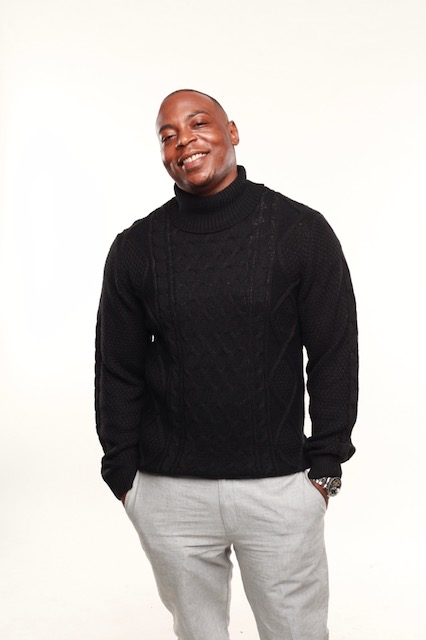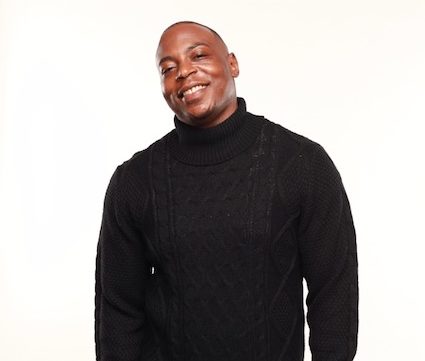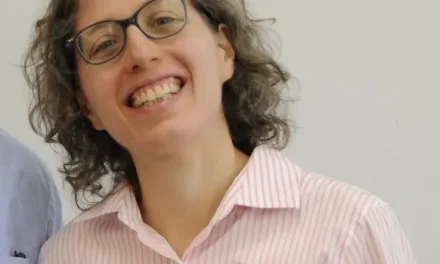
April is Second Chance Month, the month aims to share the importance of helping individuals, communities, and agencies across the country appreciate their role in supporting the safe and successful reentry of millions of people returning from incarceration each year.
A criminal record can prevent them from landing a steady job, a safe place to live, quality health care, or the chance to go to back school. Three-quarters of formally incarcerated people remain unemployed a year after their release. Meet an influential man by the name of Anthony Jackson who was able to beat the odds and find success after incarceration.
Anthony Jackson is currently a full-time entrepreneur while studying Business Administration at The University of Baltimore. He’s dedicated to spreading information about education within prison institutions. Released from prison himself in December of 2020, Mr. Jackson served over 13 years in a state-run institution. Originally sentenced to 25 years, in 2019 his sentence was modified because of his magnificent transformation. While incarcerated, Anthony took part in coordinating self-help modules for youth offenders and building a program of his own. From there he put on a keen focus on education and enrolled in non-credited college courses for two years. With a dream to one day attend college and earn actual credits, Anthony’s dream came true. In 2012, President Barack Obama brought back Pell Grants for incarcerated citizens as a pilot program allowing Colleges to teach accredited courses to inmates while incarcerated. By the grace of God, he was selected to take part in the very first cohort of The Second Chance Pell Grant Program President Obama enacted. In 2017, Mr. Jackson begin his freshman year at the University of Baltimore under its Second Chance Program in prison. Since being released 2020, his journey to inform society about the benefits of college in prisons has been a part of Anthony’s reentry process. Within months of beginning release, Anthony worked as a program coordinator for the Prisons to Ph.D. program, a nationwide program and non-profit organization assisting returning citizens with acclimating to society and getting them enrolled into colleges in participant’s areas.
Anthony is passionate about sharing his story to help returning citizens that have changed their lives and looking for a fresh start. Anthony shared with us that being released back into society isn’t easy and can be very overwhelming. He also stated that opportunities for returning citizens are important to their success, and they need support and patience.
Join us as we follow Anthony’s inspiring second chance journey.
April is Second Chance month. Tell us a little about life since being released from incarceration.
Anthony: Life since being released from incarceration has been both great and challenging but overall rewarding. During my incarceration, I became very goal oriented. I would create yearly, monthly, weekly, and daily goals because ultimately this would provide me with the mental and spiritual atonement needed to succeed.
While challenges are a part of life, there were plenty I faced and still face today. Due to my incarceration at a young age, I’ve had limited life experience. Some lessons I should’ve learned in my early twenties, and late teens I learned within my first year of release. Reconnecting and building relationships with my family members again a challenge in various ways. Understanding and adjusting to technology was challenging as well.
What programs are you aware of that help returning citizens?
Anthony: I’ve had the opportunity to work with and be a part of some organizations helping returning citizens. From Prison To Ph.D. assists people with criminal convictions by way of advocacy, mentoring, and policy change. They inspire people with criminal convictions to excel beyond what society and life circumstances have set to be the norm.
Another is the University of Baltimore Second Chance College Program. This program provides returning citizens with reentry support services, and tuition assistance if they want to attend the university, and receive mentoring from their peers who are successfully continuing their education or well versed in their careers.
Tell us about the program you enrolled in while still incarcerated.
Anthony: While incarcerated, I had a keen focus on education and enrolled in non-credit college courses for two years. With a dream to one day attend college and earn actual credits, my dream came true. In 2012, President Barack Obama brought back Pell Grants for incarcerated citizens as a pilot program allowing Colleges to teach accredited courses to inmates. By the grace of God, I was selected to be a student in the pilot cohort of our nation’s inaugural Second Chance Pell Grant Program. Today, I am still attending the University of Baltimore and a member of their Helen P. Denit Honors Program.
Tell us about your business and the inspiration behind it.
Anthony: The inspiration behind starting my vending machine business was to earn passive income and exemplify my family’s entrepreneurship and be my own boss. As a teenager, I had different jobs but I hated working for someone else. I always felt having my own would aid me on a journey to not only assist myself but my family and others more effectively.
How has entrepreneurship helped provide opportunities for you?
Anthony: Entrepreneurship has provided many opportunities for me across in multiple aspects of my life, both personally and professionally. Developing the willingness to learn is always an opportunity. Markets consistently change which leads to an abundance of new information that must be learned in order for a brand to stay sustainable as markets fluctuate. I’ve also had opportunities to expand my network by meeting different individuals and building meaningful relationships.
Get connected online: https://expeditevendingservices.com/




